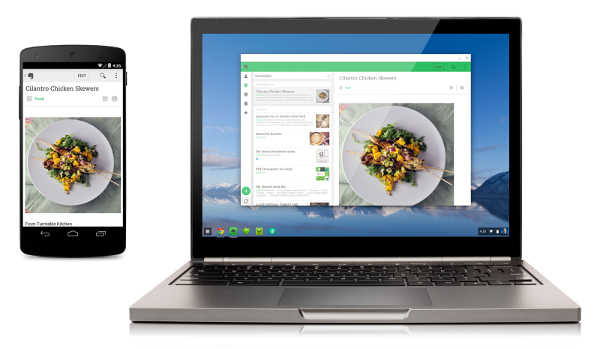| Android Apps On Chrome |
| Written by Harry Fairhead |
| Thursday, 11 September 2014 |
|
It has always been a strange situation that Google should have two mobile operating systems - Chrome and Android. Surely it only ever needed one? Now at least we have some unity in that at last Chrome OS can run Android apps in native mode. At least, it can run some Android apps. Chrome OS is essentially the Chrome browser running under a Linux host and Android is essentially a big Java Framework running under a Linux host. It doesn't take a genius to notice that, just as you could have the Chrome browser running under Android, you could have Android running under Chrome OS. Announced at this year's Google I/O, the App Runtime for Chrome was promised to be a way to allow Android Apps to run under Chrome. Now we have the first four apps that you can download and actually try out:
App Runtime for Chrome is still in beta and so far Google is "...working with a select group of Android developers to add more of your favorite apps.. " This is unusual in that Google usually throws open a beta and allows the developer community at large to find the bugs and generally be creative. In this case we have a "select group" of elite developers tasked with creating apps that appeal to the end user. This is a strange approach if Google wants to get the average app developer on board. Presumably the beta will eventually be thrown open to the rest of the world and it is difficult to understand why it isn't already? There is also the worrying fact that Google is asking for suggestions for which apps users would like to see on their Chromebooks. If we are only a matter of weeks away from seeing every Android app running under Chrome, why ask for the most desirable? There is very little technical information to go on, but Ars Technica managed to get a quote from a Googler that explained some of the workings. The app's byte code is executed using a subsystem running as a Chrome Native Client (NaCl). Presumably Dalvik or the new ART virtual machines are the main component of the system. What isn't clear is if the VM makes direct use of the Linux system or works through Chrome as a window manager. Given Android apps show up in the launcher and in a standard window, it is likely that Chrome is the host. But it is likely that modifications to the OS portion of the system are necessary as well and this might rule out a version running under the Chrome browser. It is claimed that no modifications to existing Android apps are needed, but they might be desirable from the point of view of making use of the Chromebook form factor - keyboard, touchpad etc. If this is true, it is even more mystifying why the beta is being restricted to just a few. The whole point of using a VM approach is to make porting easy and, while you can guess that there are quite a few tweaks needed to run Android as an NaCL app, it shouldn't be so hard that Google needs to hold the hand of the initial developers. Let's hope that it becomes an open beta very soon and so expands the market for Android apps by making them native on Chrome OS. If this happens we have the interesting question of which type of app is the true "native app" on Chrome OS - Android or Web apps? More InformationFirst set of Android apps coming to a Chromebook near you Chrome OS can now run Android apps, no porting required Related ArticlesNew Enterprise APIs For Android Developers Dynamic Analysis Of Top 500 Android Apps Android Comes To Wearables And Watches
To be informed about new articles on I Programmer, install the I Programmer Toolbar, subscribe to the RSS feed, follow us on, Twitter, Facebook, Google+ or Linkedin, or sign up for our weekly newsletter.
Comments
or email your comment to: comments@i-programmer.info
|
| Last Updated ( Thursday, 11 September 2014 ) |


